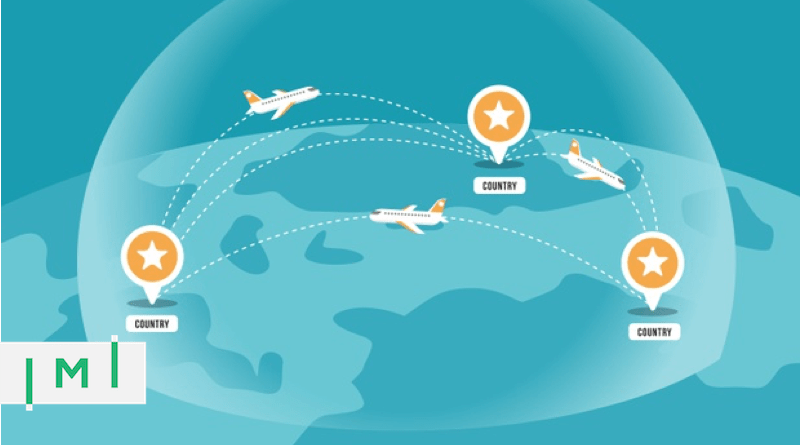Travel Bubbles: Are We Rebuilding International Travel From the Ground Up?

Due Process
With Michael Krakat
Legal Scholar Michael B. Krakat observes investment migration through the lens of international, constitutional, and administrative law.
The trans-Tasman travel bubble is coming along now; the first international tourists to Australia in six months will touch down today (October 16th), with three flights from New Zealand arriving as part of the new trans-Tasman travel bubble. People who have spent the past 14-days in New Zealand are now – as of Friday, October 16th – able to travel to New South Wales and the Northern Territory without having to undergo quarantine upon arrival. Other states and territories may be added later.
Among the additional conditions stipulated by the Australian government is that the traveler must not have been in a “designated hotspot, and you are travelling to Australia on a quarantine-free flight.’ It is not necessary to be a New Zealand citizen to travel to Australia quarantine-free but a valid visa to enter Australia is necessary.
Citizens of New Zealand do not need to apply for a visa before coming to Australia. For them, the usual Special Category visa (subclass 444) (SCV) will automatically be granted on arrival if eligible. Again, a ‘quarantine-free’ flight only carries passengers who have declared they have been in New Zealand for 14 days or more and have not been in a COVID hotspot in New Zealand in the last 14 days before travel. Quarantine-free flights will be determined by the airline. There should be no travel if feeling unwell or with signs or symptoms of COVID-19.
Bubble or nothing
However, this is a one-way bubble, and two weeks of quarantine will be mandatory on return to New Zealand from Australia. Australian Prime Minister Scott Morrison flagged that if the trans-Tasman file works, consideration would be given to expanding it to other nations that have been successful in controlling the coronavirus including Japan, Singapore, and South Korea. An extension to the South Pacific island nations is not yet clear, a bula-bubble for Australian and New Zealand tourists was proposed in June but was not implemented.
At the same time, there are other bubbles forming, such as between Singapore and Hong Kong. These initially separated bubbles will thus start to connect, with Singapore effectively linking Australia and Hong Kong again in a chain of endorsement.
This appears as a growing and most likely ever-changing ‘organic’ system, responding directly to real-life circumstances on the ground, and to each country’s actual achievements in dealing with the pandemic.
We may thus witness the early rudimentary steps of a global system of travel between ‘safe’ places in the community of nations. In this system, each nation will have a place subject to its own achievements under the umbrella of measures addressing the pandemic. The WHO may hold a crucial role and travel may become referenced against the system as well in many ways. We may even witness forms of global crisis solidarity, connecting humanity’s response to the virus and the worldwide efforts and assistance between individuals, cities, countries, and regions.
In this way, country by country, a working system may emerge bringing back municipally endorsed and facilitated global travel, with safety considerations emerging from the ground up (from safety considerations based on, ie. the Australian Biosecurity Act 2015 (Cth) and its international equivalents.
The global pandemic is thus connecting countries to respond with the formation of new branches of international law. This is, arguably, a treaty-based system between sovereign states, a new branch of international law of migration: An international law of crisis migration/mobility (ILCM)?
Somewhat counter-intuitively, but perhaps complementary, to the travel bubbles as a de-centralised country-by-country approach, the World Health Organization has now released a worldwide vaccine distribution plan favouring a global approach, prioritizing vaccination among the most vulnerable people everywhere rather than focusing on everyone in fewer places. This means that countries will be prevented from prioritizing their own citizens by so-called ‘vaccine nationalism’, a practice that is said to potentially prolonging the pandemic. For WHO Director-General Tedros Adhanom Ghebreyesus “the first priority must be to vaccinate some people in all the countries, rather than all the people in some countries.”
Michael B. Krakat is a lecturer and coordinator for comparative Public law – International, Constitutional and Administrative Law – at the University of the South Pacific at Vanuatu and Fiji campuses. Michael is also a researcher at Bond University – Queensland – and Solicitor at the Queensland Supreme- and the High Court of Australia. He also is an academic member of the Investment Migration Council. He can be contacted at michael.krakat@usp.ac.fj.



